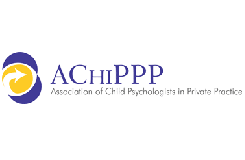This is not intended to be another article that makes you feel like a bad parent or that you are doing yet another thing wrong!
As parents, we are constantly getting messages about how we should be trying harder, doing better, and creating ‘perfect’ kids. As we all know the ‘perfect parent’ is a cruel and torturous myth that is perpetuated by many parenting articles and experts. So although this is a ‘how to’ guide on praising our children – the overwhelming premise is relevant to how we evaluate our parenting too.
As parents, we constantly hear how important it is to praise our children but praise can actually be worthless and in some cases, harmful. If we think about the purpose of praise, we would all agree that it is about building confidence, and encouraging children to continue to engage in positive behaviours that produce positive outcomes. Sometimes, we can be a bit lazy in choosing how we praise children saying things like ‘good boy’ or ‘well done’. Although this is perhaps well intentioned, it comes with its own problems. Firstly, it lacks specificity. It doesn’t tell children what precisely they did well and without that information they can’t know exactly what they should do in the future to get the same outcome. Second, “good job” or “well done” focuses on the outcome rather than the process. If you only have the energy to say two words, it would perhaps be much better to say “Good effort!” because it focuses them on what they did to do a good job. This applies to parenting too! How often have you heard – “you are such a good mother”. While it feels affirming, it can also feel like immense pressure to get it right every time!
Parents get many messages about how important it is to build your child’s self-esteem with praise and to tell them how good they are at things – and it is important! But how you do it can be just as important. Praising outcome often results in children becoming competitive and overly focused on outcome, rather than on the effort needed to experience a sense of achievement. Mostly praising the finished product of their actions also sets up an expectation that they are only worthy when the finished product is ‘perfect’. It would be more beneficial to praise their effort and risking trying new things or working hard at something as this is more likely to empower them to make an effort to reach their personal best.
So with regards to your children:
- Make sure praise is genuine
- Praise areas that are within your child’s control
Rather than focusing praise on innate and unalterable ability such as intelligence, physical attractiveness, or athletic or artistic gifts, it would be helpful to direct your praise to areas over which your children have greater control such as effort, attitude, responsibility, commitment, discipline, focus, decision making, compassion, generosity, respect, love, etc.
- Praise effort rather than outcome.
For example, children who are praised for their intelligence and getting it right, as compared to their effort, became overly focused on results and they tend to be perfectionists and feel a deep sense of failure when they don’t get something completely right.
- Use praise thoughtfully
Too much praise can actually be counterproductive in that it sets up an expectation that they are never allowed to disappoint you. Research has found that children who were lavished with generalised praise were more cautious in their responses to questions, had less confidence, were less persistent in difficult tasks and less willing to share their ideas.
- Make praise specific.
When children have done something well, it is often self-evident to them, it woud be far better to rather comment on why they did well so they can replicate that behavior in the future to get the same positive outcome. Rewarding effort encourages children to work harder and to seek new challenges. This does not only apply to school work, but life skills and behaviour too.
Now look at the underlined areas above and approach parenting with the same thoughts in mind. Just as you aim to be kind, nurturing and tolerant of your children, you should follow these ideals when thinking about your parenting. It’s okay and normal to have a bad day. Even the ‘best’ parents have days when they feel exhuated, overwhelmed and their kids don’t listen! Take time out, be kind to yourself and find the things that you managed to do, despite how hard it felt. How you acknowledge your parenting strengths will affect how you view yourself as a parent. The ‘perfect parent’ does not exist and those parents that you allow you to feel that you are not perfect are usually insecure about aspects of their own parenting. It is important to acknowledge when you make an effort to do something different for your child and it actually has a positive effect. Praising things that you are not able to control just perpetuates the feeling of not being good enough when you can’t achieve the same results again. Most of us try our best and that has to be good enough.
In evaluating parenting, too much praise can actually be counterproductive in that it sets up an expectation that you are never allowed to get it wrong. Sometimes the worst compliment we can get is ‘your children are so good’ because when the inevitable 5 o’clock meltdown happens and our children are not, it makes us feel like we have failed to live up to expectations. Often when another mother can talk about what is going wrong and how hard some aspects of parenting are for her, it frees us up to do the same and admit our own defeats.
We need to make praise specific. It’s important to acknowledge when what we do is working so that we can do it again and hopefully get the same positive outcome. The more relaxed we are, the more relaxed our relationship with our children can be, and the more connected we feel. By the same token , praising effort rather than outcome is vital. As parents, we will not always get it ‘right’ -whatever that is. There is seldom a right or wrong, but rather a ‘works for you and your child’ or ‘doesn’t work for you and your child’. It is essential to acknowledge the little victories and the bits of what we do that work for us, and praise the fact that we are trying, sometimes with difficulty, to be the best parents that we can be to our kids.
So in conclusion – ‘well done on the effort you are making to be the best parent you can be to your kids’. And also, if you see me in the street trying to deal with a whiney child – let me be – sometimes the best praise can be no comment, as then I won’t feel inadequate or judged and can be safe in my assumption that this too will pass.





